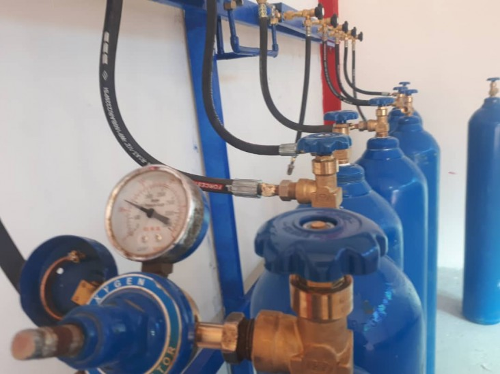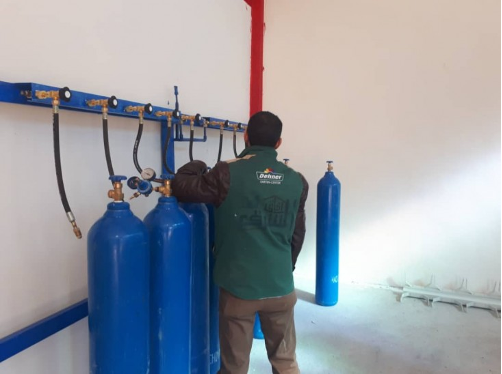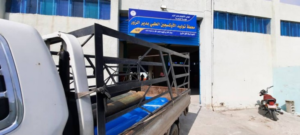For the past two years, Dr. Asfari* has started his shift at a local public hospital by taking stock of the day’s limited supply of medical grade oxygen. As the head of the hospital’s neonatal department, Dr. Asfari was often anxious that a patient in need would arrive after the hospital’s last oxygen cylinder was consumed. “Without an adequate supply of oxygen, hospitals aren’t capable of providing even basic services,” Dr. Asfari explained.
Hospitals in the Deir ez-Zour region of northeast Syria have struggled with a high demand and low supply of oxygen for years, but with the emergence of COVID-19, the need has become critical. Dr. Asfari estimates that nearly 60 percent of children who visit health centers suffer from respiratory issues.
“With COVID-19, there is a growing demand for [medical grade] oxygen due to a high prevalence of asthma and other respiratory illnesses,” Dr. Asfari said.

Barriers to Oxygen Therapy in Deir ez-Zour
Without local production of this essential health commodity, scarcity and high demand exacerbated the problem. Hospitals were forced to import oxygen cylinders from neighbouring governorates, which drove up the price and left the region with an overall shortage.
Receiving oxygen at a hospital in Deir ez-Zour could cost as much as $10/day, a price well beyond the reach of most local Syrians. “Families were forced to sell their home belongings to afford oxygen,” Dr. Abd Al Fattah*, a pulmonologist at a local public hospital, explained. The transportation costs and the high demand have turned a basic health commodity into a luxury.

Bridging the gap
As part of Coalition efforts to restore access to essential services that address community needs, build local capacity, and support communities to rebuild, implementers worked with residents and members of the local health committee to identify appropriate investments to address the medical oxygen shortage. Stories like Dr. Asfari’s led the United States Government (USG) to partner with the Deir ez-Zour Health Committee to rehabilitate an old warehouse and transform it into a medical grade oxygen refilling plant.
With USG’s support, the Deir ez–Zour Health Committee repaired the building’s structure and installed: an air pressure and purification unit; an oxygen separation unit; and a distribution and packing unit.
The new plant now produces approximately 100 medical oxygen cylinders over an eight-hour period; the locally sourced oxygen cylinders are then distributed to local hospitals.
Physicians and members of the Deir ez-Zour Health Committee have high hopes for the new plant. In addition to providing life-saving oxygen to patients, the Committee also has plans to utilize this new resource to help fund continued health care improvements.
“After addressing the oxygen shortage at public hospitals and medical centers, we’ll sell the surplus to private hospitals and possibly other industries that require oxygen,” said Aya*, a leader in the Deir ez-Zour Health Committee. The oxygen plant, which used to represent a shortcoming for the Committee, will become a sustainable source of revenue.
The Coalition will continue to work with local partners to rehabilitate health infrastructure, strengthen local health systems, and deliver health services to communities.

*Names have been changed.

